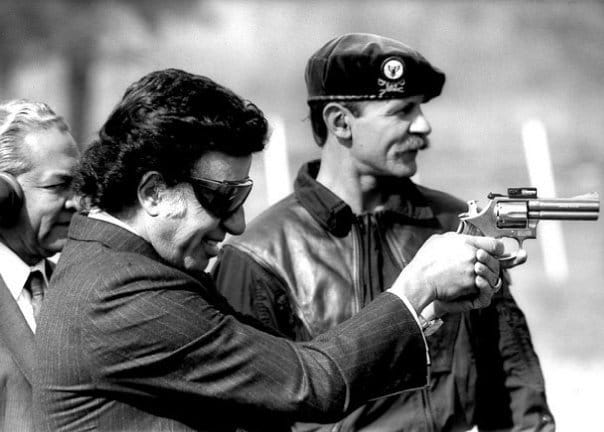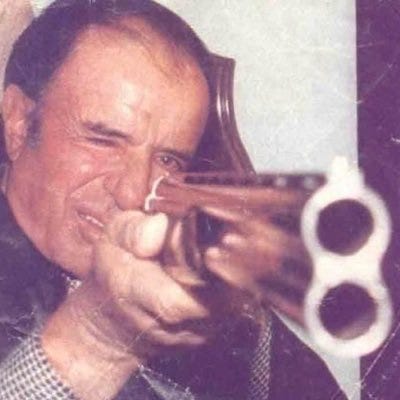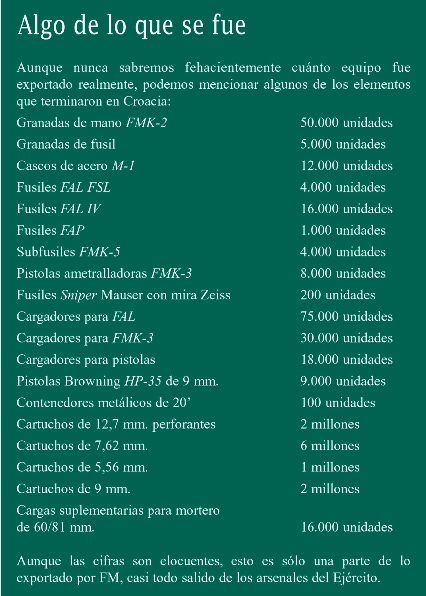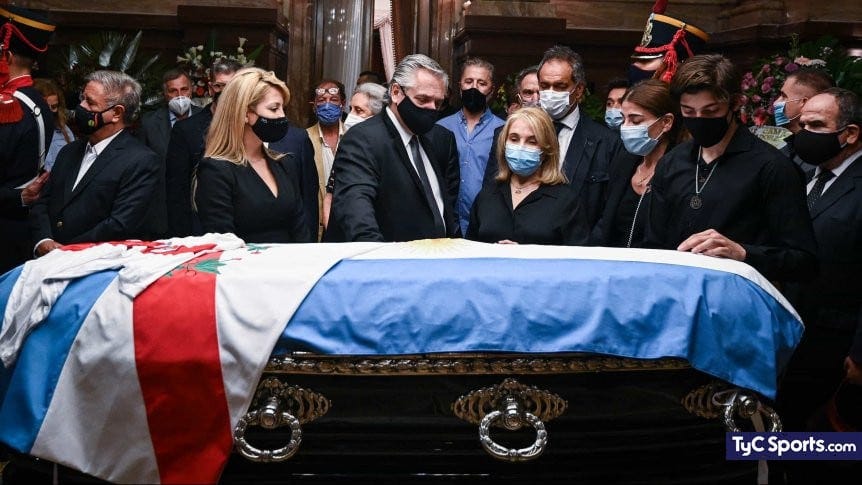The Argentina arms trafficking scandal
Before the World Cup semi final tomorrow, let's review a darker episode in Argentina-Croatia history
Welcome Avatar! Here’s a short update on a bizarre story from the 90’s about secret arms deliveries from Argentina to Croatia and Ecuador, both countries that were at war at the time. I thought it would be a nice prequel for the World Cup semi final tomorrow between Argentina-Croatia.
Background
Between 1991 and 1995, former Argentine president Menem signed three secret decrees to sell arms to Ecuador and Croatia.
The decrees simulated arms sales to Panama and Venezuela, but the shipments were sent to Croatia, Bosnia Herzegovina and Ecuador.
Ecuador was at war with Peru at the time (Cenepa War), and Croatia was at war with Serbia after the dissolution of the former Yugoslavia.
Despite the fact that Argentina was one of the guarantors of the Peace Treaty between Peru and Ecuador, Argentina made at least three air shipments of war material to Ecuador in those years.
Why did Argentina have so many weapons?
In the 90’s, Argentina had a considerable weapons arsenal and an important industrial infrastructure for the production of weapons, due to the political power achieved by the Armed Forces.
They had consolidated their power with the civil-military dictatorships supported by the United States in the framework of the Cold War in the 1970s and 1980.
Argentina occasionally kept the arsenal accumulated for the 1982 Falklands War and Operation Soberania in 1978, which put Argentina and Chile on the brink of war.
Simultaneously, Argentina had started a demilitarization process, forming a strategic alliance with Brazil that gave rise to Mercosur and the cancellation of the hypotheses of war with the United Kingdom, Brazil and Chile, which had dominated defense policy throughout most of the 20th century.
So there was a considerable weapons arsenal that Argentina could sell on the black market, and there were many buyers.
As we’ve seen time and time again, the prospect of a black market is usually too tempting to ignore, even for Argentine presidents.
Shipments to Croatia
The first cargo to Croatia included military equipment produced by Fabricaciones Militares, most notably FAL rifles.
The remaining six shipments included surplus weaponry from regular army units like as 155 mm guns, ammunition, and Italian Oto Melara howitzers. Argentina offered to refurbish the weaponry, which Croatia accepted.
A total of 6500 tons of trafficked guns and ammunition were smuggled to Croatia, according to estimates.
Senior Croatian officials have publicly declared that thanks to the shipment of Argentine arms their nation was able to arm itself to defend itself and preserve its integrity and that this allowed them to end the war.
So technically without Argentina’s help, they would not be playing Croatia tomorrow.
To cover up the origins of the weapons, some army serial numbers and Argentine insignia were erased from some weapons at the Rio Tercero military facility before they were transported, lol.
This was not done consistently, because there were weapons found in Croatia that still showed the Argentina emblem and serial numbers.
All of this shady behavior could be traced to this arms factory, so it would be convenient if that factory were no longer there.
Arms factory goes poof
On November 3, 1995, at 8:55 in the morning, three powerful explosions at the local Military Fabrication plant in the city of Río Tercero (Córdoba) unleashed a tragedy.
Seven people died (all unrelated to the military factory), more than 300 residents were injured and the collateral damage amounted to millions in the neighborhoods in the city in the center of Rio Tercero in Córdoba.
You can see the results of the explosion on archive here:
Far from being an accident, the Argentina Justice department established in 2014 that it was an attack to cover up a significant shortage of weapons and ammunition, which had been sold illegally to Ecuador and Croatia.
Nice arms factory you got there, would be a real shame if something happened to it
(No) Consequences
Eventually, as is usually the case with the justice department in Argentina, there were hardly any consequences for blowing up the weapons factory in Córdoba.
Four soldiers who held managerial positions in Military Fabrications were convicted of “aggravated malicious damage”.
In 2007, ex president Menem was prosecuted, prohibited from leaving the country and a court order was issued to seize his property. In 2013 he was found guilty in the arms trafficking scandal.
Despite this, the former president was protected by legislative privileges related to his status as a senator from the province of La Rioja. He later got acquitted in 2018 after different judges overturned the 2013 decision.
A quarter of a century later, the federal Justice of Córdoba set a date for the trial with the former president Menem for 2021, but Menem maintained his “fueros” (a protection that all active politicians have in Argentina and that makes sure they cannot do jailtime).
He died shortly after.
As you can see, this is another example story of a different type of black market gone wrong in Argentina, without anybody having to own up for their crimes.
See you in the Jungle, folks!








I lived there from 93/94-97, I was quite young then and still remember about this scandal, but never really read the details until now.
Good memories lmao